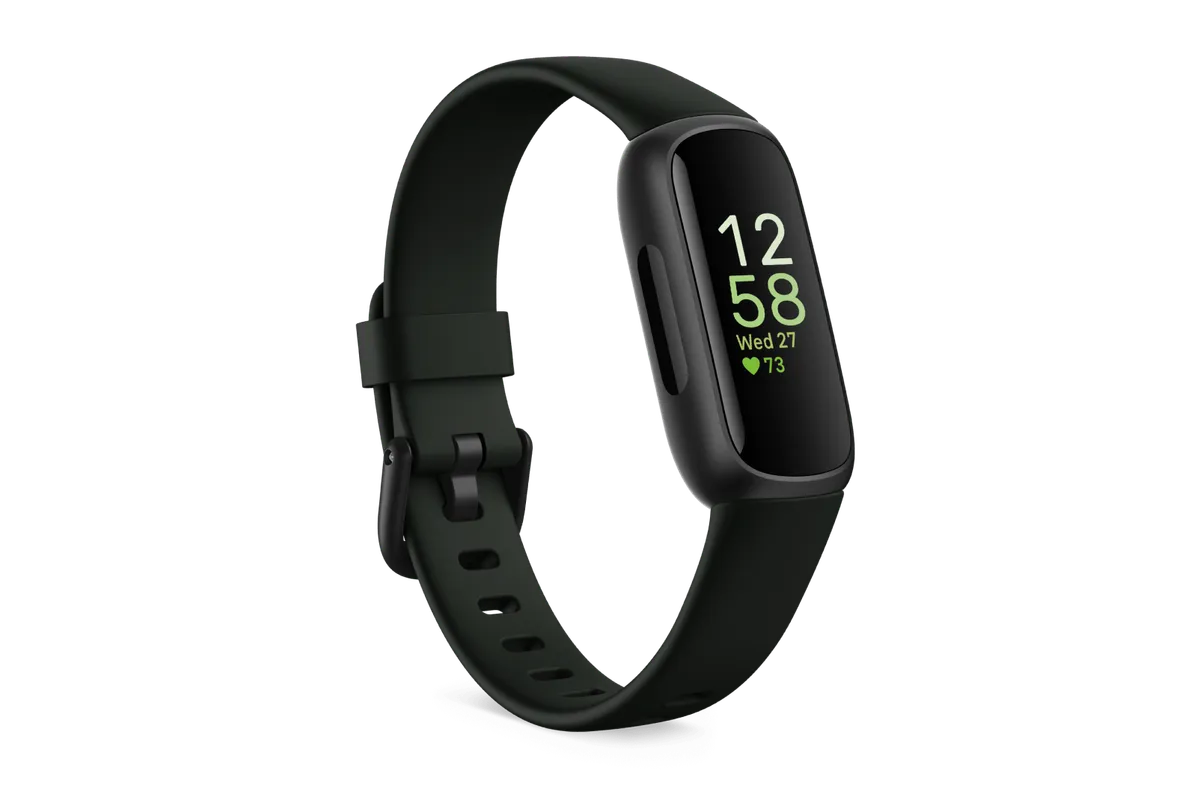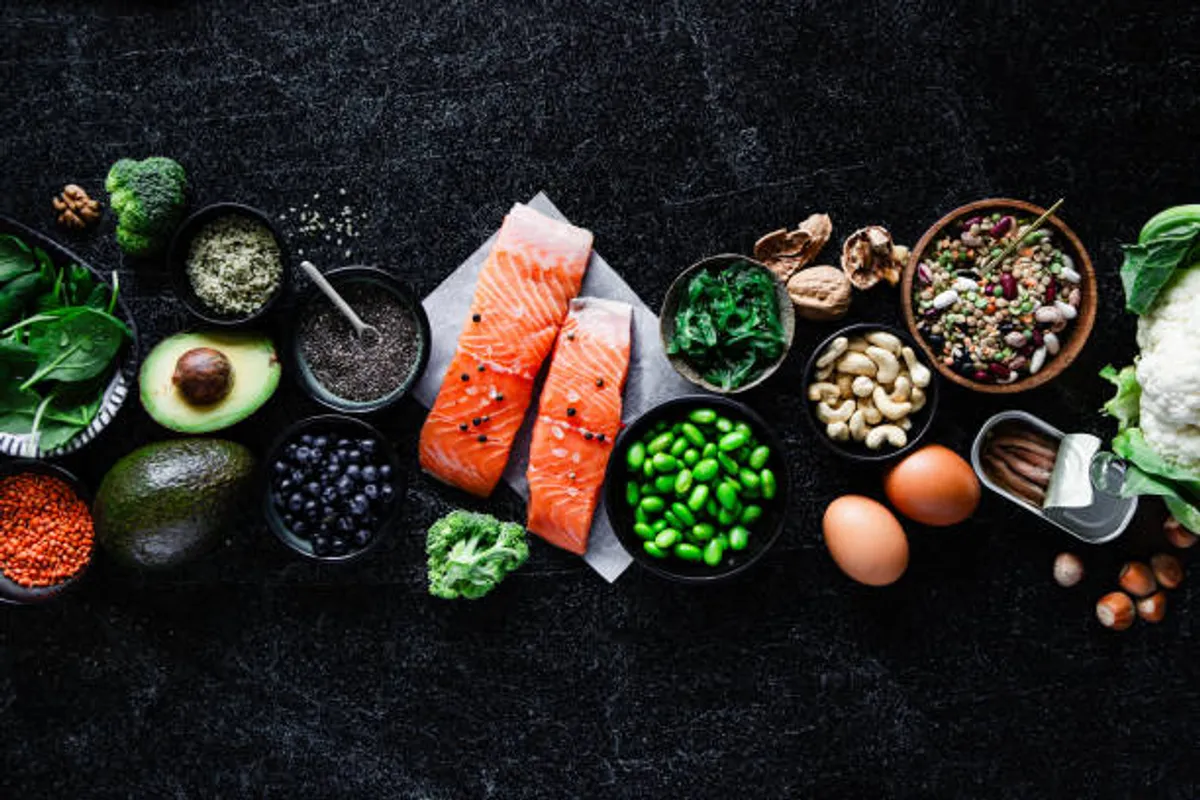Fruit That Fuels: Top Picks for Weight Loss and All-Day Energy

GeokHub
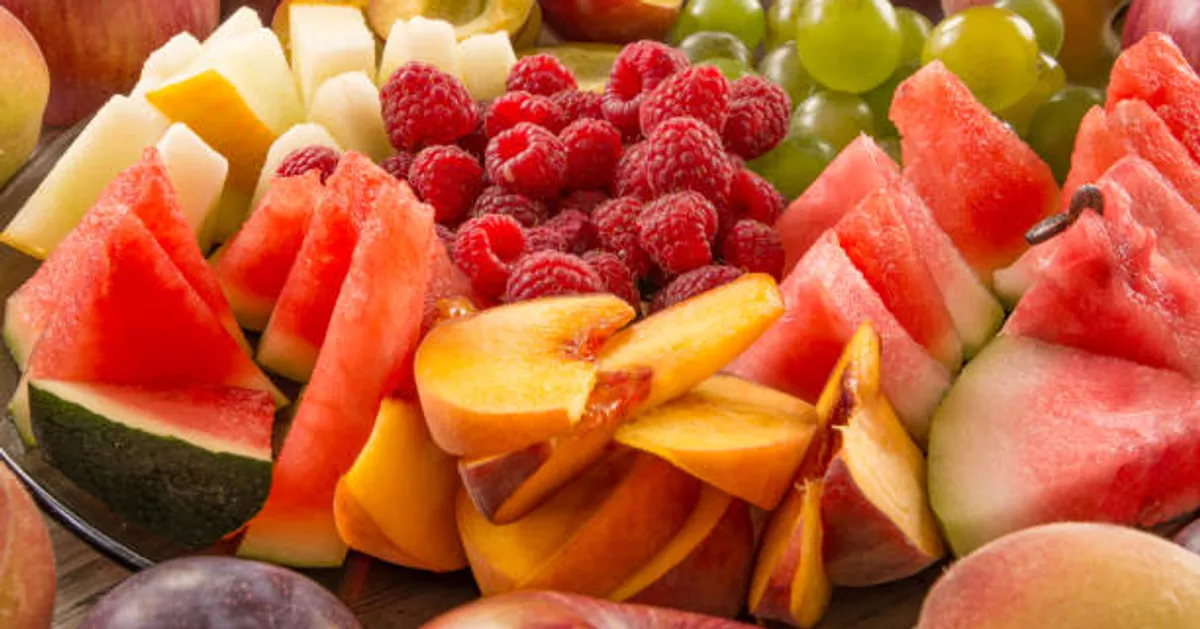
Fruits are nature’s powerhouses, packed with nutrients that can help you shed pounds, stay energized, and feel your best. Whether you’re aiming to trim down or power through a busy day, choosing the right fruits can make all the difference. This comprehensive guide highlights the best fruits for weight loss and sustained energy, backed by nutritional insights and practical tips to seamlessly integrate them into your lifestyle. From low-calorie, high-fiber options to vitamin-rich energy boosters, these picks are perfect for anyone looking to optimize their diet in 2025. Let’s dive into the fruits that fuel your goals and how to make them work for you.
Why Fruits Are Your Allies for Weight Loss and Energy
Fruits are low in calories compared to processed snacks, rich in fiber to keep you full, and loaded with vitamins and minerals to fuel your body. For weight loss, high-fiber and high-water-content fruits promote satiety, reducing the urge to overeat. For energy, fruits with natural sugars, electrolytes, and antioxidants provide a steady boost without the crash of sugary drinks or caffeine. By choosing the right fruits and pairing them strategically, you can support your fitness goals, enhance productivity, and maintain vitality all day long.
Top Fruits for Weight Loss
These fruits are low in calories, high in fiber or water, and designed to keep hunger at bay while supporting fat loss. Here’s a closer look at the best choices and how to use them effectively.
1. Berries (Strawberries, Blueberries, Raspberries)

- Nutritional Profile: A cup of mixed berries delivers 50–60 calories, 3–8 grams of fiber, and antioxidants like anthocyanins that combat inflammation linked to weight gain.
- Why They Work: High fiber slows digestion, stabilizing blood sugar and curbing cravings. Their low glycemic index prevents insulin spikes, aiding fat loss.
- How to Use: Add to morning oatmeal, blend into protein smoothies, or snack fresh with Greek yogurt for a filling treat.
- Practical Tip: Opt for unsweetened frozen berries for year-round availability without added sugars. A 1-cup serving as a mid-morning snack can keep you full until lunch.
- Weight Loss Benefit: Studies show berries can reduce belly fat and improve metabolic health when paired with a balanced diet.
2. Apples

- Nutritional Profile: One medium apple (182g) offers 95 calories, 4 grams of fiber, and 14% of your daily vitamin C needs.
- Why They Work: Pectin, a soluble fiber, promotes fullness and supports gut health, while low calories make apples ideal for weight management.
- How to Use: Eat raw with the skin for maximum fiber, slice into salads, or bake with cinnamon for a healthy dessert.
- Practical Tip: Pair with 1 tablespoon of almond butter for a 150-calorie snack that balances protein and carbs, keeping you satisfied for hours.
- Weight Loss Benefit: Research suggests eating an apple before meals can reduce calorie intake by up to 15%.
3. Watermelon
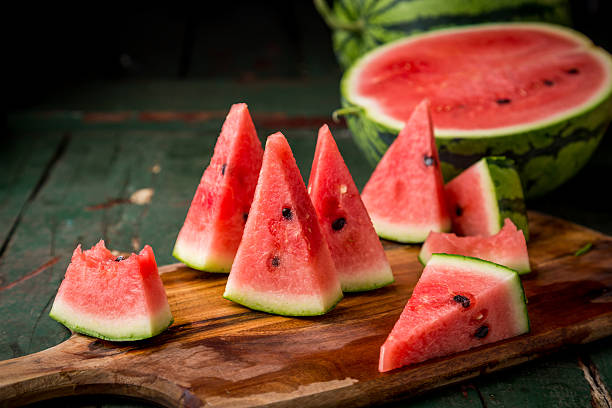
- Nutritional Profile: One cup (152g) contains 46 calories, 92% water, and small amounts of vitamins A and C.
- Why They Work: High water content hydrates and fills you up, reducing the need for calorie-dense snacks. Its low calorie density supports weight loss diets.
- How to Use: Cube for summer salads, blend into a hydrating smoothie, or freeze for a low-calorie sorbet.
- Practical Tip: Limit to 1–2 cups to manage natural sugars; pair with a protein like cottage cheese for sustained fullness.
- Weight Loss Benefit: Watermelon’s hydration properties can curb overeating, especially in hot climates.
4. Grapefruit

- Nutritional Profile: Half a grapefruit (123g) has 52 calories, 2 grams of fiber, and 64% of daily vitamin C.
- Why They Work: Studies suggest grapefruit’s compounds may enhance fat burning and improve insulin sensitivity, aiding weight loss.
- How to Use: Eat as a breakfast starter, add segments to salads, or juice fresh for a low-sugar drink.
- Practical Tip: Avoid adding sugar; a sprinkle of stevia can enhance flavor without calories.
- Weight Loss Benefit: A 12-week study showed participants eating half a grapefruit before meals lost up to 3.5 pounds more than a control group.
Top Fruits for All-Day Energy
These fruits deliver natural sugars, electrolytes, and nutrients to fuel your body for workouts, workdays, or mental focus, without the jitters of caffeine or processed snacks.
1. Bananas

- Nutritional Profile: A medium banana (118g) provides 90 calories, 23 grams of carbs, 3 grams of fiber, and 422 mg of potassium.
- Why They Work: Natural sugars (fructose and glucose) offer quick energy, while potassium supports muscle function and prevents cramps.
- How to Use: Eat pre-workout, blend into smoothies with protein powder, or slice onto whole-grain toast with nut butter.
- Practical Tip: Choose slightly green bananas for lower sugar and pair with 10 almonds for sustained energy.
- Energy Benefit: Bananas provide a steady energy release, ideal for morning or pre-exercise boosts.
2. Oranges

- Nutritional Profile: One medium orange (131g) has 62 calories, 15 grams of carbs, 3 grams of fiber, and 70 mg of vitamin C.
- Why They Work: Vitamin C and electrolytes like potassium hydrate and energize, supporting immune health and reducing fatigue.
- How to Use: Peel and eat whole, add segments to a chicken salad, or juice fresh for a morning drink.
- Practical Tip: Consume before noon to avoid sugar spikes at night; pair with a boiled egg for a balanced snack.
- Energy Benefit: Oranges’ hydration and vitamin C boost stamina for demanding days.
3. Mangoes
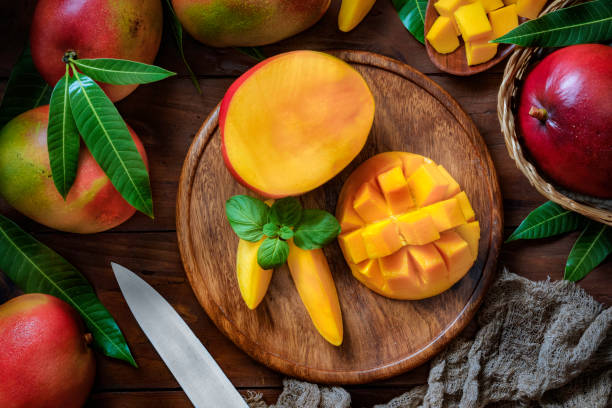
- Nutritional Profile: One cup (165g) offers 100 calories, 25 grams of carbs, 3 grams of fiber, and 67% of daily vitamin C.
- Why They Work: Natural sugars provide quick energy, while vitamins A and C support recovery and immune function.
- How to Use: Dice into yogurt parfaits, blend into smoothies, or eat fresh as a midday pick-me-up.
- Practical Tip: Stick to one cup to manage calories; combine with a handful of walnuts for sustained energy.
- Energy Benefit: Mangoes’ vibrant flavor satisfies sweet cravings while fueling active lifestyles.
4. Kiwi
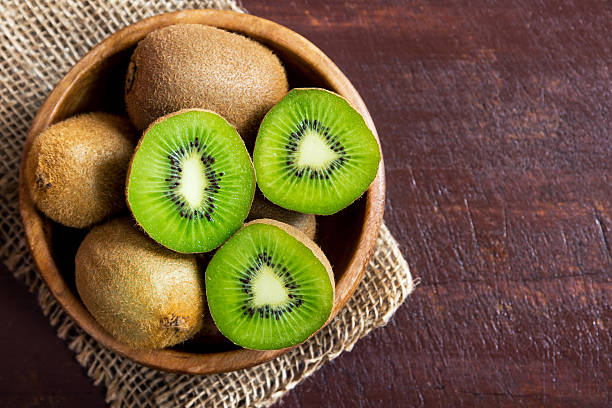
- Nutritional Profile: One medium kiwi (69g) delivers 42 calories, 10 grams of carbs, 2 grams of fiber, and 71 mg of vitamin C.
- Why They Work: High vitamin C and potassium boost energy and aid muscle recovery, while fiber stabilizes blood sugar.
- How to Use: Scoop and eat raw, add to fruit salads, or blend into green smoothies.
- Practical Tip: Eat with the skin for extra fiber; pair with a protein shake post-workout.
- Energy Benefit: Kiwi’s nutrient density makes it a compact, effective energy source.
Practical Strategies to Maximize Benefits
To get the most out of these fruits for weight loss and energy, follow these actionable tips:
- Portion Control: Stick to one serving per meal or snack (e.g., one medium fruit or one cup) to balance calorie and sugar intake. Overeating even healthy fruits can hinder weight loss.
- Timing Matters:
- Weight Loss: Consume high-fiber fruits like berries or apples mid-morning or mid-afternoon to curb hunger between meals.
- Energy: Eat energy-boosting fruits like bananas or oranges before noon or pre-workout for optimal stamina without disrupting sleep.
- Smart Pairings: Combine fruits with protein (e.g., Greek yogurt, eggs) or healthy fats (e.g., nuts, avocado) to stabilize blood sugar and enhance satiety. For example, an apple with 1 tablespoon of peanut butter or a banana with a boiled egg creates a balanced 150–200-calorie snack.
- Variety and Rotation: Mix different fruits weekly to ensure a broad nutrient profile and prevent dietary boredom. Try a berry smoothie one day and a mango-yogurt parfait the next.
- Preparation Hacks: Keep pre-cut fruits in the fridge for quick access, or freeze berries and mangoes for smoothies to save time. Avoid canned fruits in syrup to minimize sugar intake.
- Track Your Response: Monitor how your body reacts to fruits, as some individuals may need to limit high-sugar options at night to avoid energy spikes or digestive discomfort.
Sample Daily Fruit Plan
Here’s how to incorporate these fruits into a day for weight loss and energy:
- Breakfast (8 AM): One orange + Greek yogurt (100g) for a 150-calorie energy kick.
- Mid-Morning Snack (11 AM): One cup of mixed berries (60 calories) to curb hunger.
- Lunch (1 PM): Salad with one cup watermelon + grilled chicken (200 calories total).
- Afternoon Snack (4 PM): One apple + 1 tbsp almond butter (150 calories) for satiety.
- Pre-Workout (6 PM): One banana (90 calories) for a quick energy boost.
- Total: ~600 calories from fruits and pairings, balanced for weight loss and energy.
Potential Considerations
- Sugar Content: While natural, fruit sugars (fructose) can add up. Limit to 2–3 servings daily if watching carbs, especially for low-carb or keto diets.
- Allergies or Sensitivities: Some may experience digestive issues with high-fiber fruits like apples; start with small portions and consult a doctor if needed.
- Individual Goals: Athletes may need higher-carb fruits like bananas, while those focused on weight loss should prioritize low-calorie options like berries. A dietitian can tailor recommendations.
- Sourcing: Choose fresh or frozen fruits over canned to avoid added sugars. Organic options may reduce pesticide exposure but aren’t essential for benefits.
Why These Fruits Stand Out in 2025
In 2025, with rising health consciousness and busy lifestyles, these fruits offer a practical, affordable way to meet dietary goals. Berries, apples, watermelon, and grapefruit excel for weight loss by keeping you full on fewer calories, while bananas, oranges, mangoes, and kiwi provide sustained energy for demanding schedules. Their versatility—whether in smoothies, salads, or snacks—makes them easy to integrate into any routine. Plus, their nutrient density supports overall health, from boosting immunity to improving heart health, aligning with global trends toward clean eating.
Final Thoughts
Fruits like berries, apples, watermelon, grapefruit, bananas, oranges, mangoes, and kiwi are your allies in achieving weight loss and all-day energy. By strategically incorporating them into your diet, timing intake for maximum impact, and pairing with proteins or fats, you can fuel your body effectively while staying on track with your goals. Experiment with these picks, track how they work for you, and enjoy the delicious, natural benefits they bring to your health journey. Start small—grab an apple or a handful of berries today—and watch how these fruits transform your energy and waistline.
